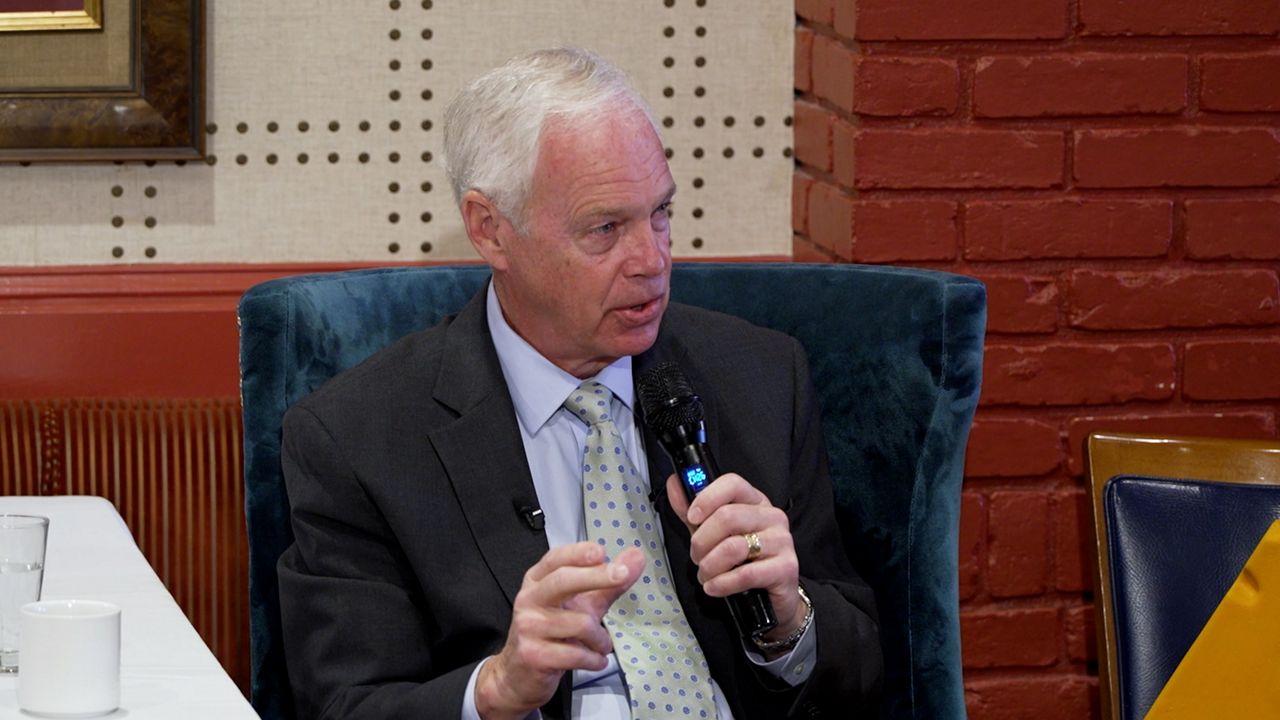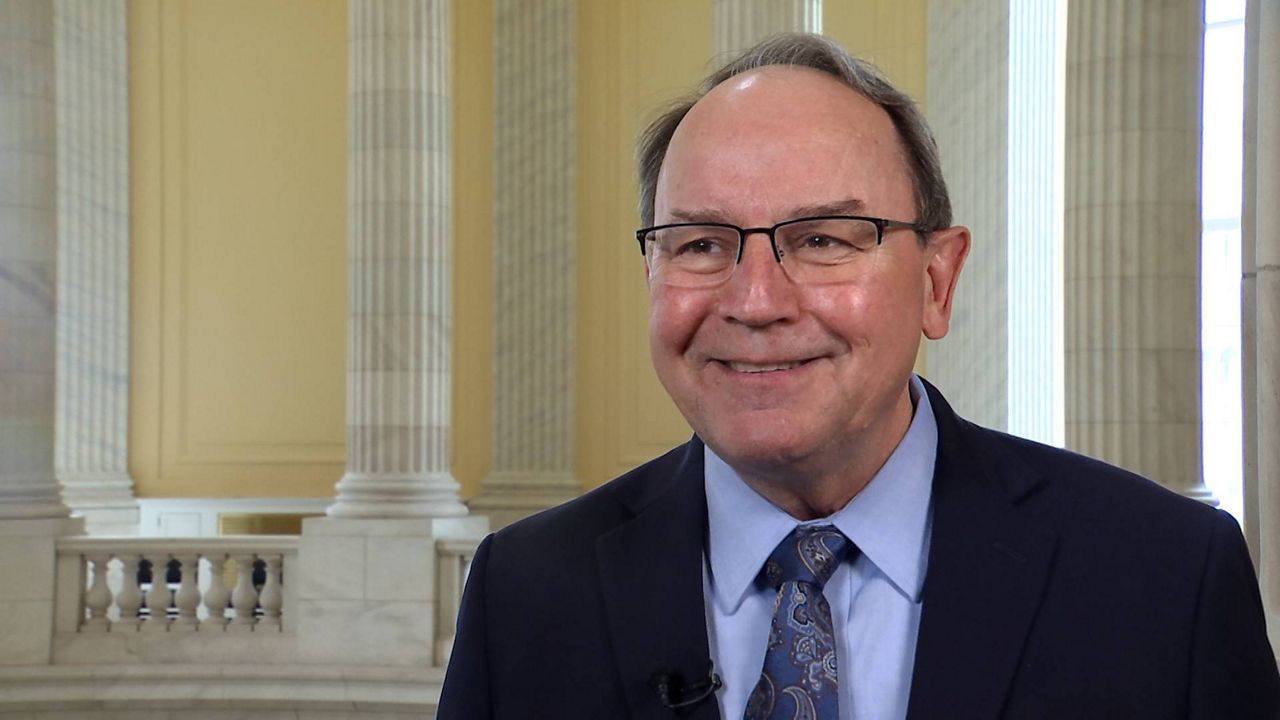WASHINGTON — America will drastically increase its taxes on imports on Wednesday, as President Donald Trump implements his plan to bring more manufacturing jobs back to the U.S.
On Tuesday, Sen. Ron Johnson, R-Wis., appealed to the president’s Trade Representative Jamieson Greer. Johnson said he wants fair trade but that his constituents will be harmed by tariffs.
“I don’t often agree with the members on the other side of the aisle, but in many cases here today, particularly when they’re expressing concern about small businesses in their states, I hope you and the President are very sensitive about companies potentially going bankrupt by these actions,” Johnson said. “I hope you recognize tariffs are a double-edged sword, I would argue, a somewhat blunt instrument.”
Johnson told reporters later just how hard tariffs could hit Wisconsin small businesses.
“There are certain products they simply can’t access other than overseas, and they’re going to be hit with large tariffs that are going to make them uncompetitive both domestically and internationally,” he said.
It’s rare for Johnson and his counterpart Sen. Tammy Baldwin, D-Wis., to agree on a contentious issue, but Baldwin on Tuesday raised similar concerns and said more lawmakers should speak up.
“I think it’s a responsibility of elected representatives to represent the people who voted for them and stand up to this administration on these harmful actions that they’re taking,” Baldwin said.
“I was talking to an auto mechanic whose parts that they get to repair your vehicles are mostly from overseas, and so car repairs are going to be more expensive,” Baldwin said, elaborating on the stories she’s heard from constituents on how tariffs will impact them. “Talked to a person who does home remodeling, and all the components, if you want to redo your bathroom, how that cost could go up thousands of dollars. Home buyers will see up to maybe a 5% increase, and we already have seen housing costs go sky high in Wisconsin. We cannot afford to see that go even higher. And then, for the manufacturers, we have Wisconsin-based companies that have facilities in Mexico or facilities in Canada, and as raw materials and components go back and forth, they could be facing tariffs multiple times in the making of a larger product. So we see a lot of harm being done by Trump’s tariffs.”
Baldwin added that she spoke with a couple on a farm in Vernon County who said they have not yet recovered from the trade war of Trump’s first term and are not convinced they will be able to survive this one.
“I’ve heard from others who talked about the cost of inputs,” Baldwin continued. “A key ingredient of fertilizer that most farmers use comes from Canada, and people are very worried about how that input cost will increase and lower their margin. I’ve also talked to a farmer who gets his glass milk bottles — FDA approved — and the lids from Canada, and he said the cost of a pallet of those will double because of the tariffs … Most of our small family farms have exceedingly thin margins, and this could make or break them.”
In anticipation of the tariffs, the stock market has been in a selloff, as investors fear tariffs will raise prices and reduce consumer spending, triggering a recession. And as some of America’s biggest trading partners are responding by slapping their own levies on U.S. goods, another Democrat is sounding alarm bells.
“It is going to be a tax on literally every person in the country,” Rep. Mark Pocan, D-Madison, said. “Trump’s tariffs aren’t focused. If they’re strategic, and someone’s dumping cheap steel in the country, and you put a tariff on it to protect an industry, that’s a smart thing to do. But when you do them just across the board, all you do is raise costs across the board for everyone.”
Rep. Tony Wied, R-Green Bay, said the president was clear throughout the campaign that he’d use tariffs as a tool to negotiate free and fair trade.
“Could there be some short-term pain? Potentially,” Wied said. “But ultimately, we’re looking at long-term. We need to fix this country, fix the economy, and, again, bring jobs back to this country, industrialize here, and grow the middle class. And I think that’s really important. He’s doing exactly what he said he was going to do, and I campaigned on it as well.”
Rep. Tom Tiffany, R-Minocqua, is also sticking by the president.
“This is a real reset that President Trump is doing, and I think it’s going to get America back to the right place where we make things once again,” Tiffany said. “You can come to my district, and you can see the main streets that have been hollowed out over the last 30 years, and he wants to revive them, and you do that by bringing back manufacturing, especially in these small communities.”
The president has been holding firm but said the administration has begun negotiating trade deals with many countries that would reduce the need for tariffs in some cases.
“It’s kind of like saying, ‘I’m gonna buy a bunch of oranges because I’m gonna make applesauce,’ right?” Pocan quipped. “I mean, he can still negotiate down tariffs without doing something that, right now, is causing disruption to the stock market and to many small businesses.”












